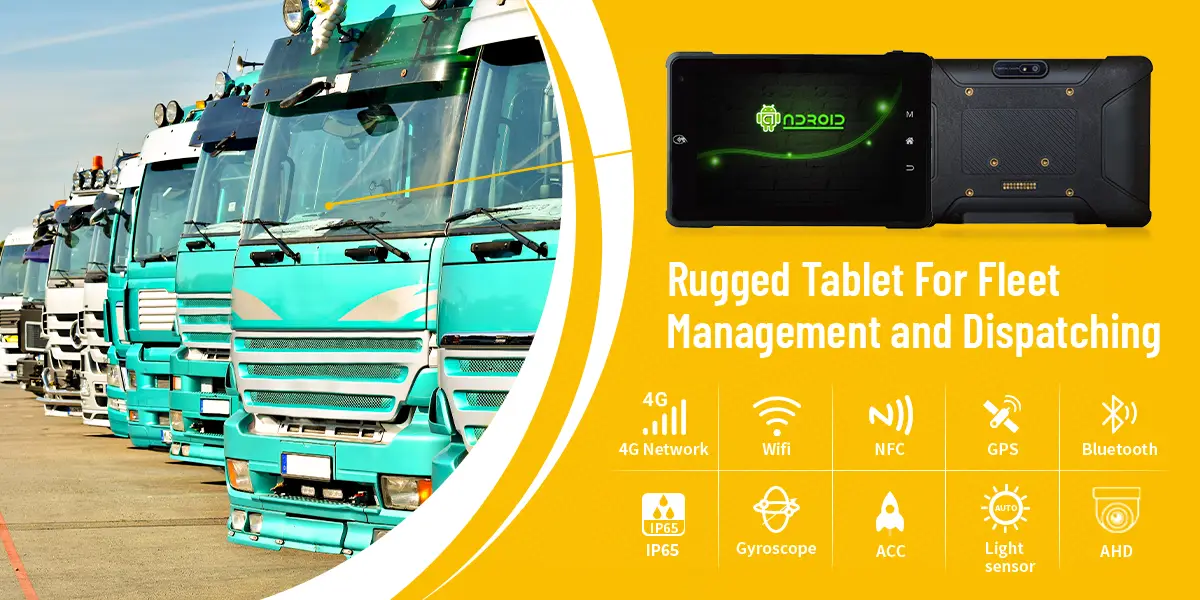Effective Management of Vehicle Fleet
Managing a vehicle fleet efficiently is crucial for businesses that rely on transportation. A well-maintained fleet ensures timely deliveries, reduces operational costs, and enhances overall productivity. In this comprehensive guide, we will delve into the best practices for vehicle fleet management, covering everything from routine maintenance to leveraging advanced technologies.
- 1. Introduction to Vehicle Fleet Management
- 2. Importance of Regular Vehicle Maintenance
- 3. Leveraging Telematics for Fleet Optimization
- 4. Implementing Fleet Management Software
- 5. Best Practices for Driver Management
- 6. Sustainable Fleet Management
- 7. Compliance with Regulations
- 8. The Role of Data Analytics in Fleet Management
- 9. Enhancing Fleet Safety
- 10. Cost Management and Reduction Strategies
- 11. Future Trends in Fleet Management
- Conclusion
1. Introduction to Vehicle Fleet Management
Vehicle fleet management involves overseeing a company’s fleet of vehicles to maximize efficiency, safety, and cost-effectiveness. This includes a range of activities such as vehicle acquisition, maintenance, compliance with regulations, driver management, and utilization of telematics.
2. Importance of Regular Vehicle Maintenance
Regular vehicle maintenance is the cornerstone of a successful fleet management strategy. Routine checks and services prevent unexpected breakdowns, extend the lifespan of vehicles, and ensure safety. Key maintenance practices include:
- Scheduled Inspections: Conducting regular inspections to identify and address potential issues before they escalate.
- Oil Changes and Fluid Checks: Ensuring that oil, brake fluid, coolant, and other essential fluids are at optimal levels.
- Tire Management: Monitoring tire pressure and tread to prevent blowouts and improve fuel efficiency.
- Brake and Engine Checks: Regularly testing brakes and engines to maintain performance and safety.
3. Leveraging Telematics for Fleet Optimization
Telematics systems provide real-time data on vehicle location, speed, fuel consumption, and driving behavior. By integrating telematics into fleet management, companies can achieve:
- Improved Route Planning: Optimizing routes to reduce travel time and fuel consumption.
- Driver Behavior Monitoring: Identifying and addressing risky driving behaviors such as speeding and harsh braking.
- Predictive Maintenance: Using data to predict when maintenance is needed, reducing downtime and repair costs.
- Enhanced Security: Tracking vehicles in real-time to prevent theft and recover stolen assets.
4. Implementing Fleet Management Software
Fleet management software is a powerful tool that streamlines various aspects of vehicle fleet management. Key benefits include:
- Centralized Data Management: Consolidating all vehicle-related data in one platform for easy access and analysis.
- Automated Reporting: Generating detailed reports on fleet performance, fuel usage, and maintenance schedules.
- Compliance Tracking: Ensuring all vehicles comply with regulatory requirements and safety standards.
- Cost Management: Monitoring expenses to identify areas for cost reduction and efficiency improvements.
5. Best Practices for Driver Management
Effective driver management is essential for the smooth operation of a vehicle fleet. This includes:
- Driver Training Programs: Providing regular training on safe driving practices and company policies.
- Performance Monitoring: Using telematics data to monitor driver performance and provide constructive feedback.
- Health and Safety: Ensuring drivers undergo regular health checks and adhere to safety protocols.
- Incentive Programs: Motivating drivers with rewards for safe driving and efficient performance.
6. Sustainable Fleet Management
Adopting sustainable practices in fleet management not only benefits the environment but also reduces costs. Strategies for a greener fleet include:
- Fuel Efficiency: Implementing fuel-saving technologies and promoting eco-friendly driving habits.
- Alternative Fuels: Exploring options such as electric, hybrid, or biofuel vehicles to reduce carbon emissions.
- Vehicle Right-Sizing: Selecting the appropriate vehicle size and type for specific tasks to optimize fuel consumption.
- Carbon Offsetting: Investing in carbon offset programs to mitigate the environmental impact of fleet operations.

7. Compliance with Regulations
Staying compliant with local, national, and international regulations is a critical aspect of fleet management. This involves:
- Understanding Legislation: Keeping up-to-date with laws governing vehicle emissions, driver hours, and safety standards.
- Regular Audits: Conducting internal audits to ensure compliance with all regulatory requirements.
- Documentation: Maintaining thorough records of maintenance, inspections, and driver certifications.
- Training and Education: Regularly updating drivers and management on regulatory changes and best practices.
8. The Role of Data Analytics in Fleet Management
Data analytics plays a pivotal role in modern fleet management. By analyzing data, companies can:
- Identify Trends: Recognize patterns in vehicle performance and maintenance needs.
- Optimize Operations: Make informed decisions to improve efficiency and reduce costs.
- Predictive Insights: Anticipate future issues and address them proactively.
- Performance Benchmarking: Compare performance metrics against industry standards to identify areas for improvement.
9. Enhancing Fleet Safety
Safety is paramount in fleet management. Strategies to enhance fleet safety include:
- Advanced Driver Assistance Systems (ADAS): Implementing technologies such as lane departure warnings, collision avoidance, and adaptive cruise control.
- Safety Protocols: Establishing and enforcing comprehensive safety protocols for all drivers.
- Regular Safety Training: Providing ongoing safety training to keep drivers updated on best practices.
- Accident Response Plans: Developing and communicating clear procedures for responding to accidents.
10. Cost Management and Reduction Strategies
Managing and reducing costs is a key objective in fleet management. Effective strategies include:
- Fuel Management: Utilizing fuel cards and monitoring fuel consumption to identify savings opportunities.
- Maintenance Optimization: Scheduling preventive maintenance to avoid costly repairs.
- Insurance Management: Regularly reviewing insurance policies to ensure adequate coverage at the best rates.
- Asset Utilization: Ensuring vehicles are used efficiently and minimizing idle time.
11. Future Trends in Fleet Management
The field of fleet management is continuously evolving. Emerging trends include:
- Autonomous Vehicles: The potential of self-driving vehicles to reduce labor costs and improve safety.
- Electric Vehicles (EVs): Increasing adoption of EVs for their environmental and cost benefits.
- Blockchain Technology: Enhancing transparency and security in supply chain and fleet operations.
- Artificial Intelligence (AI): Using AI for predictive analytics, route optimization, and driver behavior analysis.
Conclusion
Effective management of a vehicle fleet requires a multifaceted approach, incorporating regular maintenance, advanced technology, and best practices for driver management. By leveraging data analytics and staying compliant with regulations, companies can optimize their fleet operations, reduce costs, and enhance safety. As the industry evolves, staying abreast of emerging trends will be crucial for maintaining a competitive edge.








